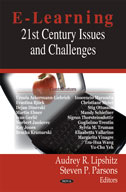Die Verwendung von Microblogs und Weblogs in unserer Lehrveranstaltung und die Evaluation haben wir im Rahmen dieser Publikation auf der heurigen E-Learn Conference.
Abstract:
This paper describes a follow-up Web 2.0 approach to a technology enhanced master course for students of Graz University of Technology. The lecture “Social Aspects of Information Technology” has a long tradition for using new didactical scenarios as well as modern e-Learning technologies. After using a blogosphere one year ago, this year microblog channels helped to expand the traditional lecture. Students choose (on a voluntary basis) whether they want to participate in a blogging/microblogging group instead of using conventional methods called Scientific Writer/Scientific Reviewer. This study addresses the question whether this method can change the learning outcome into a more reflective one. Furthermore, peer-reviewing groups judge the quality of essays and blog contributions. In this paper we examine if microblogging can be an appropriate technology for assisting the process.
This publication comes to the conclusion that an amazing potential and a new way to work with information is opened when using microblogging. Students seem to be more engaged, reflective and critical in as much as they presented much more personal statements and opinions than years before.
Referenz: Ebner, M., Maurer, H. (2008) Can Microblogs and Weblogs change traditional scientific writing?, Proceedings of E-Learn 2008, Las Vegas, p. 768-776, 2008

